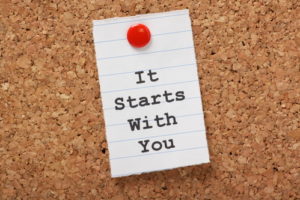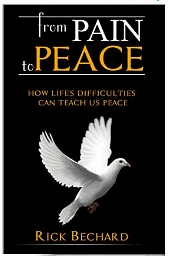 A Formula For Loving Relationships
A Formula For Loving Relationships
Why Working On Yourself Is Where It Begins
In my film about love and relationships, I asked the late psychotherapist Dr. Kenneth Wapnick how he would describe a healthy relationship. He replied that relationships could be seen as healthy to the extent that any of us could be in them without need.
This seems like a good formula for having a healthy relationship, but how are we to do this? By our very nature humans are need machines. Our physical needs are obvious: food, water, shelter, oxygen, the list is plentiful. Yet, our psychological and emotional needs are equally demanding and from my personal experience, impossible to satisfy.
The goal of this article is to go deeper into the understanding of our psychological and emotional neediness. Developing a perspective that we can relate to helps us to be with our feelings instead of projecting them on to others. It is a way of tapping into the love within us and then recognizing that everyone has that same love within them.
Moving forward, I believe we have two choices to consider. The first is to see love as an instinctual biological process to benefit the evolution of the species. The second is to consider that love originates from a different place and is something more spiritual.
For many, seeing love as something biological is tough to do. Acts of kindness, empathy and feelings of love when they occur, don’t feel motivated by biological evolution; rather, they seem to extend from another realm.
I like to call that realm the Mind.
There is the view in many spiritual and religious teachings that the mind is an indefinable entity not confined within time, space or the body. This postulate puts forth that the brain and the body behave in biological ways that the mind has already determined. Yet there is one caveat within this hypothesis that would explain why relationships in this world are complicated and help us understand why humans can sometimes be very loving or really mean.
This caveat puts forth that this entity referred to as the Mind, is split. One half of this split would be referred to as the ego. This part is conceptually self-identified, needy, and full of fear and guilt. The other split would be considered a thought system that represents we have no need and are complete.
Considering this theoretical principle of the mind as possibly true, it would provide us the framework to see that we as humans have identified with the ego split part of the mind. This in turn, would explain the underlying emotional neediness we all have. What’s more, this caveat stipulates that having identified with our ego part of the mind, we become unaware there is another part of the mind of which we could instead choose to identify with.
Because of our mind-level decision to choose the ego, we now experience our worldly lives as an individualized ego, spending much of our time satisfying the emotional and psychological needs the ego demands. What are those demands you ask? They are to find love, to feel important, to feel good about ourselves — in short, to feel complete. Having identified with our ego, we come to each other not out of an understanding of shared purpose and common interest, but rather to satisfy our need to find love. This is not love. Love does not seek to get anything. Instead, it extends and joins with the self-understanding that we are one.
When I was young and fully identified with the ego, my goal to meet others was to see what I could get from them. I would look for people who would make me happy and feel better about myself or make me feel important. I knew that if I walked down the street with a beautiful woman, a famous actor or perhaps a head of state, others would perceive me as significant versus had I been walking down the street with a homeless person. This was selfish thinking. When one identifies with the ego, it is what one becomes.
Challenging for us is that the drive to satisfy our needs is very powerful, and the ego is a bottomless pit of need. No matter what we seemingly attain in the world or within our relationships it will never be enough. No matter what type of relationship we experience, ego dynamics will rule and they can be so subtle. For example, when we are upset because someone didn’t say “thank you” as we opened the door for them, or someone forgets our anniversary, we begin to think they don’t care. If we don’t get a promotion at work, we begin to feel less important, or if someone cuts us off in traffic, we immediately think: “How dare they!”
For the ego, the world is full of meteorites that at any moment can take away our peace. This happens when we try to measure love by what someone does or does not do for us. It happens when we feel disrespected because someone cut us off in traffic or feel less worthy because we didn’t get a promotion.
There is not one thing, circumstance or person that has the power to extinguish our personal emotional emptiness and psychological self-loathing. Only we have that power. Being oblivious of this, many of us have entered relationships thinking this person or that situation will make us feel whole and give us the love we desperately seek, only to find ourselves later still feeling empty and disillusioned.
On one level we all recognize this is true and the problem we have faced is not knowing what to do about it. This is where Dr. Wapnick’s formula for a healthy relationship comes to center stage. It does so because it helps us to understand that our neediness will ultimately sabotage all our relationships, and the only way for our relationships to improve is for us to improve.
To that end, the only way to reduce emotional and psychological need in our relationships so they can truly be loving is to begin working on ourselves. Whatever that might look like for each of us does not matter. What matters is our willingness to develop a state of mind where we realize happiness is our responsibility. When such a revelation occurs, it reflects we have begun to identify with the part of our mind that reminds us we have no need.
As this new consciousness flickers in, we begin to recognize that there is no need to chase love because love is who we are. It is this awareness, which begins to change the attitude we have within all our relationships. Our relationships may in form still look the same; some being messy while others appearing more empathetic. The difference will be that our inner spirit won’t be messy or filled with empty kindness. We will be authentic with our love and less likely to approach others for what we believe they can give us.
Yet, let me provide one important disclosure. We won’t apply this formula for a healthy relationship perfectly. Undoing the ego does not happen overnight. It is a life-long process that likely involves pain and various types of relationships. It will not be a sin when we don’t get it right, because mistakes can be corrected. It is healthy to be self-forgiving when we find ourselves re-identifying with the ego.
What matters is we maintain the willingness to see everyone as ourselves and understand that each person is fighting their own battle to survive. It is this perception that will be the glue that guides us not to attack, but to join with others.
I know from experience having done it my way never worked. It has cost me nothing to apply this formula and since its application 25 twenty five years ago I can see its efficacy. I’m still fully human with all the feelings that accompany the human experience. The difference is, I own all of it.
Over time, I’ve noticed I hold onto feelings of anger, disappointment and frustration a little less longer and find I smile just a little bit more. Even more significant, I no longer have an underlying need others are what I want them to be. It feels like I have been released from jail and the odd thing is I had imprisoned myself.
We are all imprisoned by the ego and the above formula is the key to get out.
 Buy the Book!
Buy the Book!